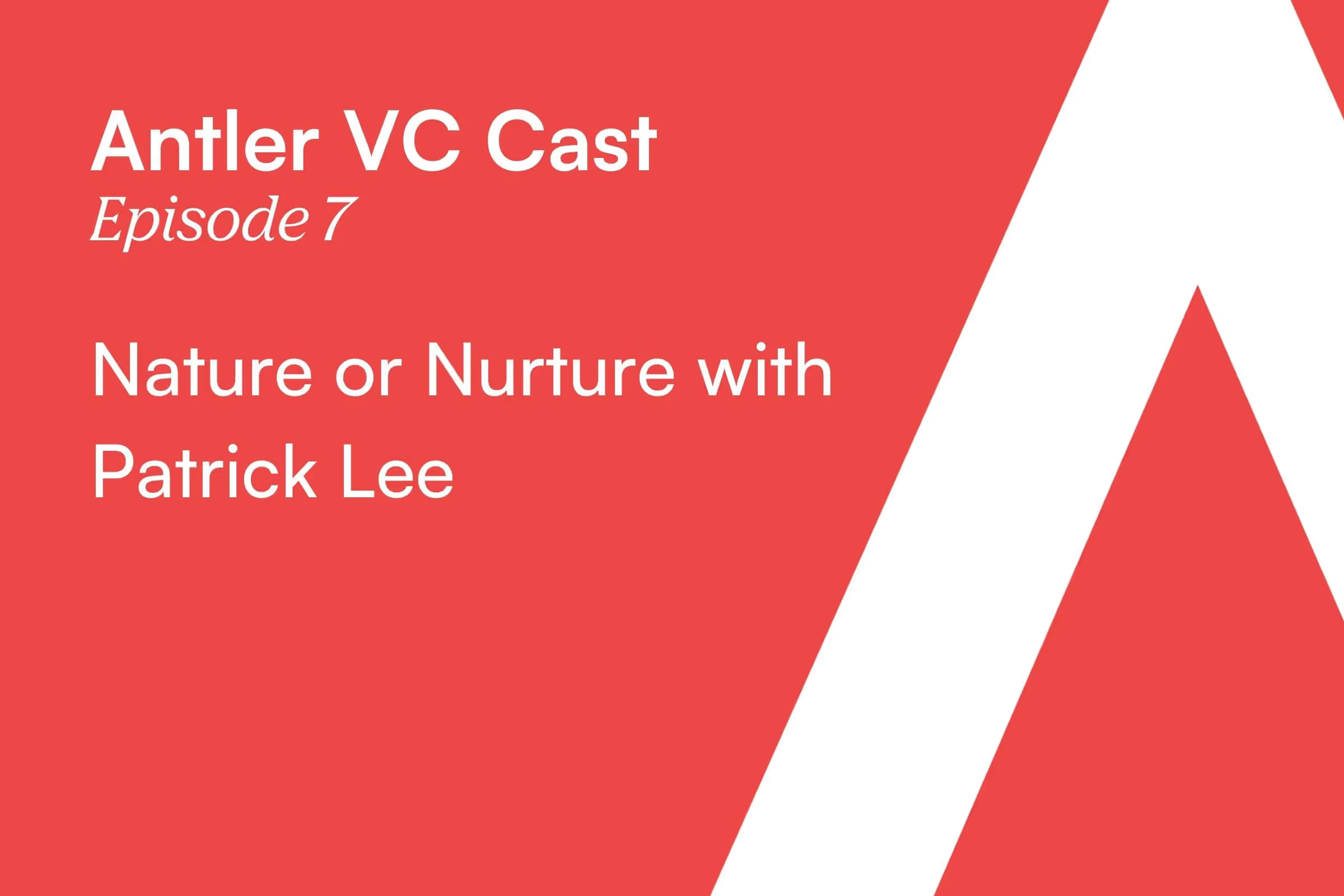In this poignant conversation, Patrick talks about the inception of the Rotten Tomatoes idea, the ups and downs of entrepreneurship during his journey of building and then selling his company, and the larger purpose which lies at the core of all he does.
Key Highlights From Transcript
[11:41] Patrick shares why he thinks that he sold Rotten Tomatoes too early and how he steered the business as the market crashed and they had to go through 9/11.
[23:05] Patrick dives into his journey as a serial entrepreneur with six companies under his belt and the balance he has created between nature and nurture that keeps him going.
[31:20] Patrick shares his views on entertainment and consumer gaming and where he sees it going.
A product like no other
Patrick Lee: Essentially, we had a product which people found useful. The goal of Rotten Tomatoes was to save people time and money, from not seeing a bad movie. And the specific problem we were solving at the time was something like this - it's Friday night, you know you want to go out and watch a movie, but what movie should you see? And when Rotten Tomatoes came out there wasn't another really good solution. The closest was probably Siskel and Ebert with their thumbs up, thumbs down to reviewers. But beyond that, maybe you get your local reviewer, your local newspaper or TV show person, or it was that you saw a trailer on TV or in a theatre from another movie and that's how you made your decision. And obviously the trailers always try to make the movie look really good. There wasn't this idea of a singular score that could give you a good way to compare movies across.
On looking back and reflecting on the journey
Jussi Salovaara: You have publicly said in the past that you sold Rotten Tomatoes too early. Now that you've had more time to reflect on that, do you still have that view and is there something you want to share about it?
Patrick Lee: So I think for us the big thing was because right after we raised, the market crashed and we had to go through 9/11. It changed the way we thought about things. Because once the market crashes, you aren't raising money again, but two, especially because the internet stock bubble burst, so it really hurt internet companies, of which we were one. Back then, the majority of internet companies, I want to say 90 some percent of them, were making their money from ads, not directly from users. And so most of these companies that were ad-supported, the money was coming from other internet companies. So they were raising a bunch of money to buy ads on other sites to get traffic, to increase their eyeballs so that they could raise more money, that they could then buy more ads, and keep doing it and they would try an IPO. That was the typical path. But once the market crashed, they didn't have any money anymore so they also stopped buying ads.
Ad rates went from five to $20 CPM down to fractions of a penny. So your revenue went to near zero also. And so that's a really tough hit. That would be like right now if you were running a business that was retail-focused. You're probably not going to be able to raise money easily and you also lost all your revenue. So it was the same kind of thing
On going into survival mode
Patrick Lee: We were just always in survival mode. We're just like, don't die, don't die. We had to cut from 25 people down to seven. I was sleeping under my desk for half a year. And so when we started getting offers, we actually started getting offers where it was 10 cents on a dollar, 25 cents on a dollar, as far as what our investors would have gotten back. And internally we talked about it and we had gotten to break even, and so we said we're not going to sell unless we at least can get our investors their money back.
Looking back at it now, we're like, wow, that was such a low bar to just only aim to get your investors their money back.
We actually sold and made them money - it was probably one of the only things that actually returned anything because everything else they invested in went to zero during that time. We had too low of a bar, and I think a lot of it was because literally two months after we raised everything went crazy.
A personal epiphany
Patrick Lee: I realized, personally, a lot of it was my fault because I was the CEO. All three of us, my co-founders and I, we were introverted.
We didn't go out, we didn't network, we just happily worked on the product.
Due to that, we didn't have much advice outside our investors. A lot of investors were hurting so much that when they saw it got offers, they were just like, take it, take it! But we really didn't have much knowledge about 'should we sell', 'is it the right time to sell', 'how do you sell', 'how do you get competitive offers'? Do we bring on a bank or something else to help us with the process? We didn't know any of that.
Nature or Nurture
Jussi Salovaara: Since you're a serial entrepreneur yourself and have been involved in starting six companies, what's your take on entrepreneurship in terms of nature versus nurture, how do you see it? Do you need an intrinsic drive or can you learn it? Where does the weight or the balance stand there?
Patrick Lee: I think it's both. One thing I would say among all my tech founder friends that have been successful is they have what I call irrational confidence. So they just believe very strongly in themselves. A lot of times it is based on kind of nothing. Maybe they went to a good school or they did well in school or whatever it is.
In general, when we did Rotten Tomatoes, we didn't know anything about movies. I don't think the Airbnb people were hotel people. I don't think the Uber people were taxi people.
That happens across the board where people come in, do something very crazy out of the blue and disrupt a lot of things. And a lot of times they're going to have tons of folks out there saying no to them over and over and over, but they still go out and do it.
The difference between the good, bad and great founders
Patrick Lee: The way I look at it is the folks that are not meant to be founders, they won’t even try. The potentially “bad founders”, they’re going to hear everyone saying ‘no, no, no,’ and they’re going to be like, ‘you’re right’, and they give up. The good founders hear the “NOs” and they still push through.
And then the great founders hear the “NOs”, push through, but actually they can convert even some of the “NOs” into “YESes” because they’re just so good at their passion or their drive or what they’ve built is able to convince people.
And you’re going to get “NOs” from so many places; your friends, your family, potential people you’re trying to raise from, people you’re trying to hire, clients, customers, users. Everyone just all the time, and if you’re not ready to handle that, you’re not meant to be a founder.
It's not about the money
Puja Bharwani: I want to go back to something that you mentioned a few times when you talked about Rotten Tomatoes and about what you're currently doing. This whole concept of helping people, advising and it not being about the money. So you seem to have a bigger purpose at the core, and what is it? I want to ask how do you do this consistently for 20 plus years and have this big vision in mind to actually give?
Patrick Lee: For me, a lot of it was just because I've always felt like life is short. I definitely remember strongly feeling that even when I was in high school, that life is just really short. Our high school was quite competitive, it was a magnet program, and everyone was focused on getting into really good schools. Then when you're in school, in college, everyone's focused on getting a good job, and I'm like it seems like there's more than just study hard in high school to get into a good college, study hard in college to get a good job, and then do whatever it is you do after that. Get married, have kids and buy a house. Is this all there is in our whole life?
And so that's the reason why I always wanted to work with friends and I made a point about that. I always wanted to do something that was interesting, that's why of the six startups, four of them touch entertainment because I found entertainment interesting.
But I would say, even with Rotten Tomatoes, one of the things that appealed to all of us that were working on it was we sat around for two days straight right after we decided to do it as a company was to ask, 'what is the goal of Rotten Tomatoes'? That's when we came up with 'we save people time and money from not seeing a bad movie.' Even though the individual impact for any one person is not super high and you save them a little bit of money and a few hours, it still felt like it was a positive thing. And when you multiply that against all the times where it helped someone's decisions, for how many people it's affected, we probably saved millions of dollars and millions of hours.









%20(1)%20(1).jpg)
%202%20(1).avif)
%20%20(1)%20(1).avif)
